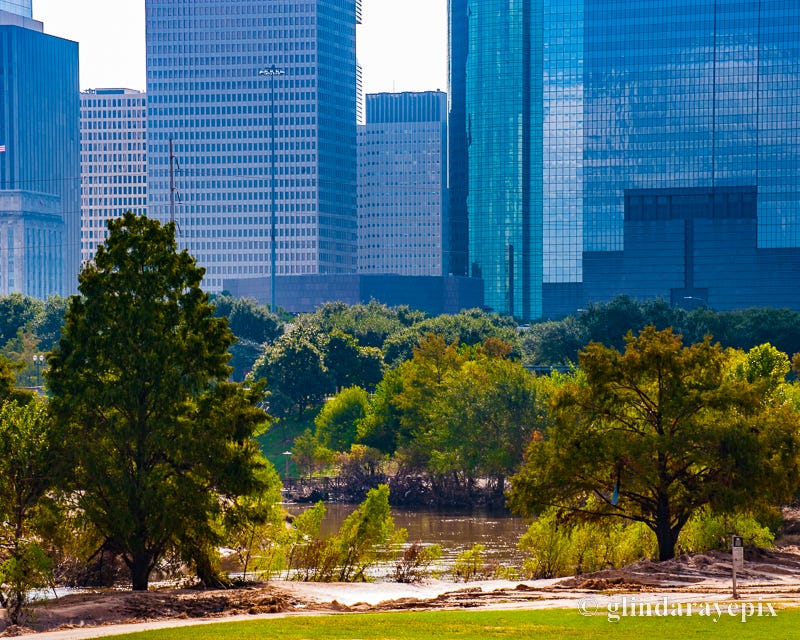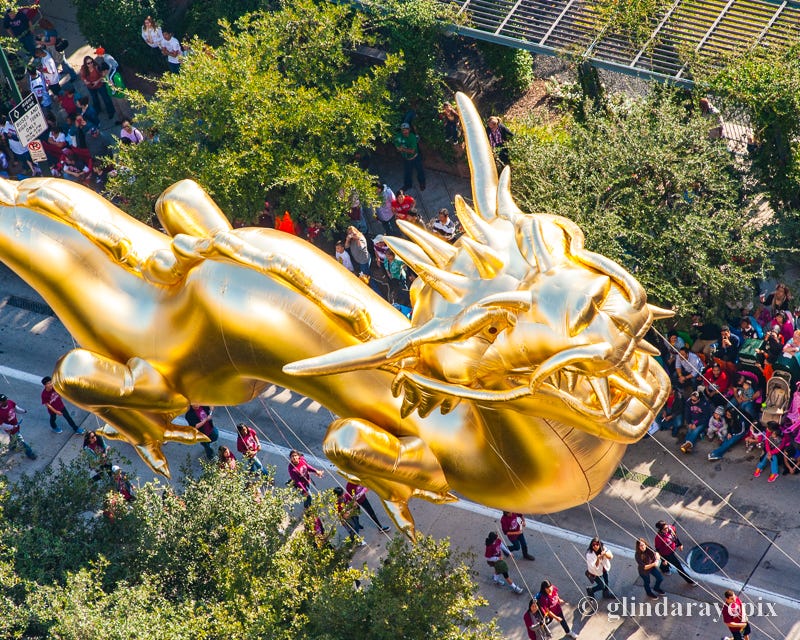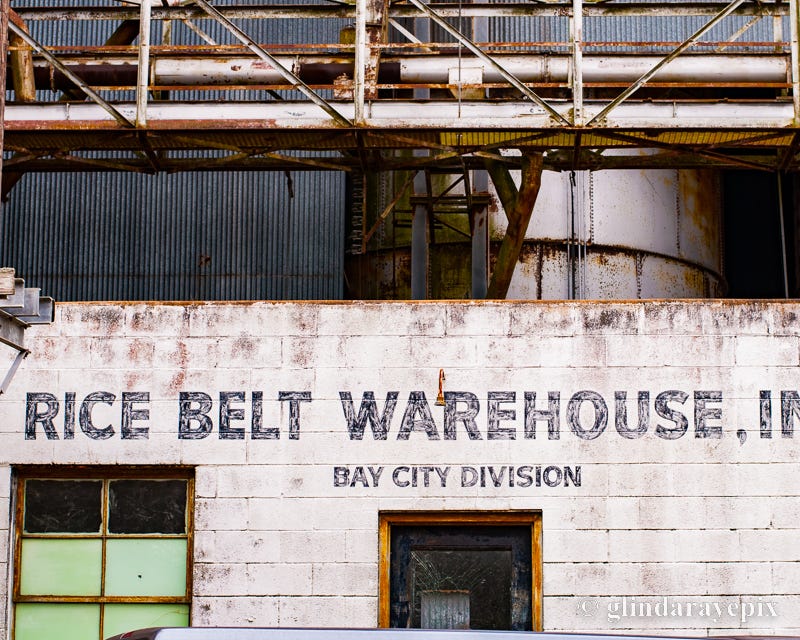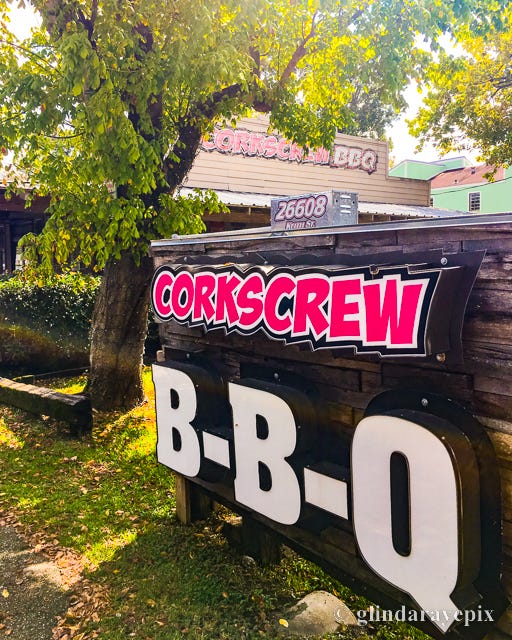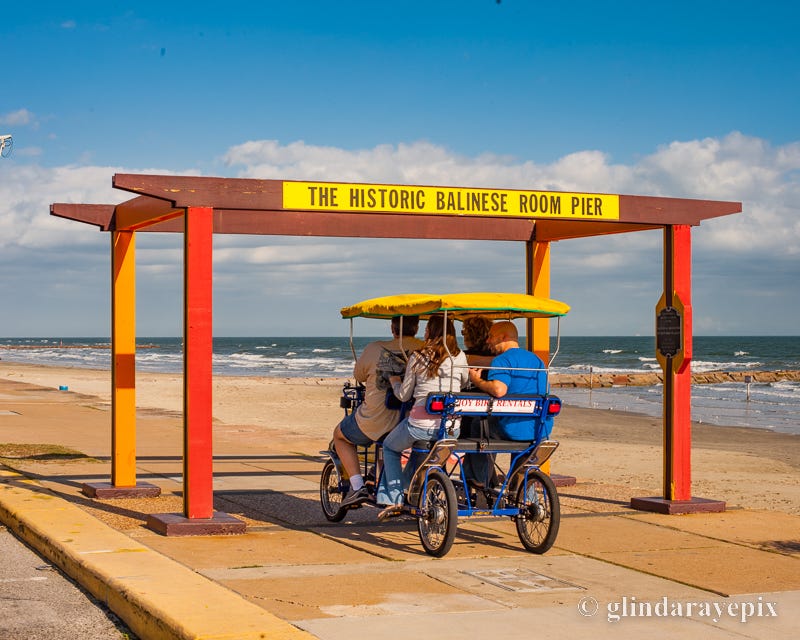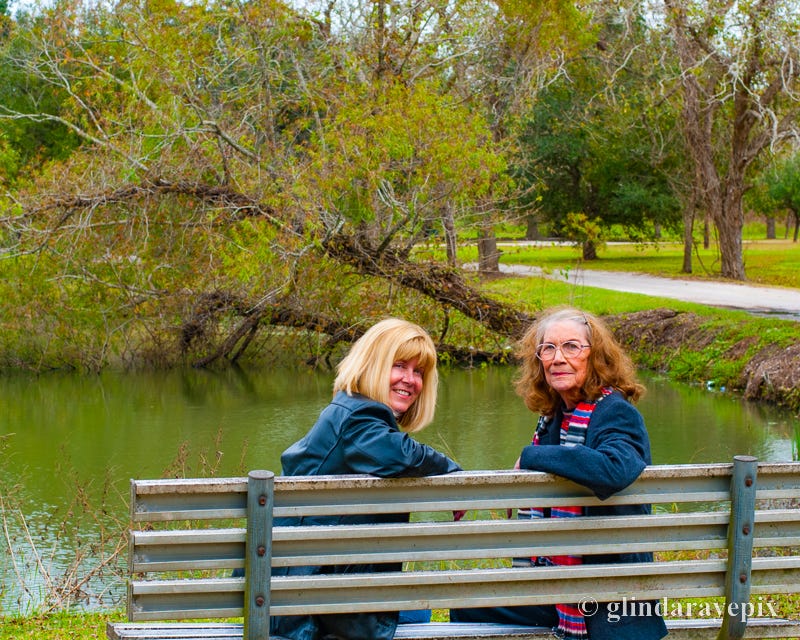Some of our Texan friends will recall this article from when we circulated it among them before publishing at Herald Publications. For everyone else, this is a reprint about one of our favorite travel destinations in America.
To the outside world, Texas can sometimes seem like an over-sized, cast-iron skillet—flat, hot, dry, and spilling over with big-talking Texans in cowboy hats and bolo ties. Drop a bowling ball on the ground in the Panhandle and watch it slowly and steadily roll past a ranch, an oil derrick, and a pile of money clear across the state to the sea. Ask a Texan, and per their reputation, everything here is bigger, better, faster, tougher, stronger, taller—and on and on—than anywhere on Earth.
Yet, unlike most clichés, which bear some grounding in reality, these prejudices couldn't be less descriptive. Houston, on the Gulf of Mexico, lives a world apart from Dallas, much less Midland, Lubbock, or El Paso. As the fourth largest urban complex in America, it belongs to the eccentric seaside culture that curves around from New Orleans through Galveston to Corpus Christi. Texas was born here in 1836, at the eighteen-minute Battle of San Jacinto, but the offspring grew into a charismatic fountain of activity.
In the summers, Houston sends surfers and sun worshippers to the nearest beaches to escape the thick blanket of sea-born humidity. In the autumn, it braces with the rest of the Gulf for floods and hurricanes—and sends rescue workers by the hundreds to help the less fortunate.
As one of the most diverse cities in America, Houston was the only major metropolis to get through the 1960s without a race riot. In 2009, with a vibrant LGBTQ community, it elected the first openly lesbian mayor of a major US city. It is a mecca for space exploration and medical research, and home to some of the best educational facilities in America. And yet, when Glinda first brought Ben here to meet the folks, the first thing he wanted to visit was the Houston Ship Channel.
The Channel in question was dredged out of the Buffalo Bayou and Galveston Bay in an operation that started in 1836 and continues to this day. If you're interested in industrial tourism—and admittedly, not many people are—this is one of the great anthropological sites of the world. Petroleum refineries, chemical plants, steel works, paper mills, grain elevators, high-tech plants and laboratories, construction companies—along with the docks, wharves, warehouses, engineers, and roustabouts to service them.
Admittedly, it's no environmental paradise, but if you want a true feeling for the scale of American ingenuity and organization in our first two hundred years, look no further. And at a time when former mega-complexes like Detroit, Pittsburgh, and Buffalo have misplaced their industrial ambition, the Ship Channel and the city it serves are bringing in the largest expansion in their history.
Oil and its gusher of exports might have financed the explosion of growth in Houston, but they don't necessarily define the place. Glinda's family were rice farmers in the wet expanse of land to the southeast that made this and Louisiana two of the richest granaries of the world.
The damp weather also made the ground hospitable for sugar and cotton, and those crops ushered in one of the bleaker periods in the city's history, as the hub of a short-lived slave state that joined the Confederacy. After the Civil War, Texas did its worst to suppress its Blacks and poor Whites, but with the western frontier and Mexico so close, and with a chronically tight labor market, the region never quite fell into the ignorant slumber of the Deep South that so distressed Mississippi's William Faulkner.
The Civil Rights Act of 1964 and the Voting Rights Act of 1965—both brought to fruition by the Texan Lyndon Johnson—transformed America, and nowhere more so than in Houston. Attracted by their growing power base and quality of life, Blacks flocked here in ever-increasing numbers, followed in the 1970s by Mexicans and Asians. For the traveler, this increasingly urbane heterogeneity is reflected in the eclectic local offering of arts, culture, and cuisine.
If you're from California, with its Sonoran and Baja Californian influences, Tex-Mex cooking is an acquired taste—think enchiladas and overstuffed burritos made with flour tortillas and loaded down with cumin, yellow cheese, and refried beans. Restauranteurs like Felix Tijerina (of Felix's, since closed and reopened as Uchi, a gourmet Japanese eatery) and the Anaya Brothers (of Don Jose Mexican Restaurant) led the way in adapting Mexican cuisine to mainstream American palates.
If you crave true Mexican, the uber-imaginative, award-winning Hugo's on Westheimer is our favorite outside of Mexico City. Think of goat, pork, barbacoa, scallops, and shrimp, in all manner of vegetables and exotic sauces (especially their mole poblano and salsa terasca), with pyramids of flavored rice. Our favorite drink at the bar is la Tricolor, named for the Mexican flag—three narrow sipping glasses of white tequila, spicy tomato, and lime juice.
But as noted, the Mexicans arrived late in Houston. Long before them, the city was famous as a center of soul food (Esther's, This Is It), seafood (Christie's, Caracol), Cajun (Cajun Kitchen, Ragin' Cajun), BBQ (Corkscrew), and various in-betweens. And in recent times, the influx of Vietnamese and other Asians has infused the restaurant scene with all manner of new aromas and flavors.
Along with Hugo's, Don Jose, the Cajun Kitchen, and the Houston National Cemetery—where Glinda's mother and father (a veteran of Okinawa) lie at rest—our regular stops in Houston include Galveston, the nearby beach town that has no business existing. Hurricanes have repeatedly tried to blast this historic community into the Gulf. Every decade or so, the locals evacuate to safer ground, then crawl back for yet another round of re-building.
Our favorite marker on the Galveston Seawall recalls the Balinese Room, a nationally famous speakeasy we used to frequent, where the bartender invented the Margarita for the visiting Peggy Lee. In 1951, when Galveston County Sheriff Frank Biaggne was asked why he hadn't raided the club's casino, he complained that, as a non-member, he wasn't allowed inside.
But most of our time in town is spent visiting with scores of family and friends from the last half-century. And this is the "Thing" about Houstonians and maybe Texans in general—they make friends quickly, and they mate for life. To a longtime wanderer like Ben, the intense mutual gratitude and loyalty shown by nearly everyone you meet—not just to other individuals, but to the state and the country that nurtured them—can be a bit disconcerting. Until you make your own relationships and realize that they'll be with you forever.
Sounds like the human-scale paradise many Houstonians like to think it is.




